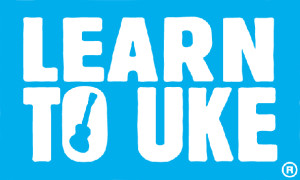Growth mindset. Think: “I can’t do it YET!”
What if you changed the sentence ‘I can’t do it’ to ‘I can’t do it yet’? The power in that extra word buys you time to make the necessary changes until you CAN do it.
How many times have you heard someone say ‘I’m not musical’ or ‘I can’t do it’? I’ve heard it countless times. It really gets my goat because I previously believed it of myself, and I’ve also seen what many believe to be a miraculous improvement in one of my young students a few years ago. He was deemed ‘non-musical’ and ‘tone-deaf’ yet he became a top student, simply because of our encouragement and his practice.
The power of believing you are not fixed is invaluable to your development. Knowing you are not stuck where you are, and knowing that this life is not a test to be passed or failed will be a game-changer for you, whether that’s playing the ukulele or swimming the channel. I’m writing this as I’m currently reading ‘Mindset. The new psychology of success‘ which talks about a ‘fixed mindset’ and a ‘growth mindset’. Here are a few words from the author, Carol Dweck’s TED Talk:
“I heard about a High School in Chicago where students had to pass a certain number of courses to graduate and if they didn’t pass they got the grade ‘Not yet’. I thought this was fantastic, because if you get a failing grade you think ‘I’m nothing, I’m nowhere’ but if you get the grade ‘not yet’ you understand you’re on a learning curve – it gives you a path into the future.” – Carol Dweck. Watch her TED Talk, “The power of believing that you can improve”
A quick anecdote so you really think about this: Consider babies learning to walk and talk. At no point do they give up and walk away from those challenges. If you could read minds, you’d never hear a baby say ‘maybe I should give up on this – I’m not designed to walk/talk’. So why does that change in children and adults? Why do we give up when we don’t see immediate results? We need to employ the power of ‘yet’ at the end of the sentence. I can’t do it… yet! This gives you the time to improve and the time to practice. Ten to sixty minutes (depending what you want to put in or get out of it) practice at a set time each day will take you from an absolute beginner to an intermediate ukulele player in 3-6 months. To help you make it into a habit, think of it like brushing your teeth, set a time that works for you each day and reward yourself for your hard work afterwards.
Realise your potential, and be as inspired as I was by Carol Dweck’s book, ‘Mindset. The new psychology of success‘.
